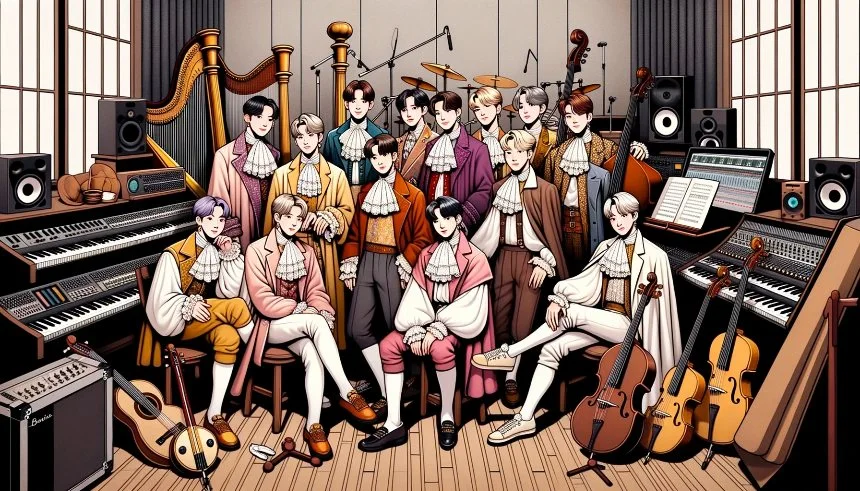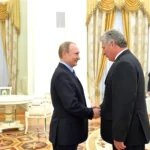K-Pop fans, often grouped under various fandom names, are not mere passive listeners. They are a global community, interconnected through social media platforms like Twitter, Weibo, and Instagram. This vast digital network provides a stage for fans to express solidarity, share information, and champion causes.
Take the instance of the Black Lives Matter movement in the U.S. K-Pop fans utilized their collective might, drowning out opposition through a coordinated effort. They flooded hashtags, often used by detractors of the movement, with unrelated K-Pop content. This act not only diluted the opposition’s voice but also signaled a clear stand with the movement.
Furthermore, these fandoms have demonstrated their ability to impact real-world events. In one notable incident, fans reserved tickets en masse for a political rally, affecting attendance projections and garnering media attention. Such actions reflect the fandom’s capacity to execute large-scale, organized campaigns.
But it’s not just about global politics. On home turf, K-Pop artists and their fans have influenced South Korean societal norms. They challenge traditional gender roles, advocate for LGBTQ+ rights, and address mental health, pushing the envelope of South Korean conservatism.
K-Pop Idols: More Than Just Entertainers
Diving deeper, one realizes it’s not just the fandoms wielding influence. K-Pop idols themselves have embraced the mantle of influence, recognizing their reach and responsibilities.
Countries often utilize culture as a soft power tool, and South Korea is no exception.
A pivotal point of reference is BTS, undeniably the globe’s biggest K-Pop act. Their speech at the United Nations in 2018 was not about music. RM, the group’s leader, spoke about self-acceptance, youth empowerment, and the trials of their generation. Such a stage was unprecedented for pop stars, showcasing their transition from mere entertainers to global ambassadors.
Moreover, idols are actively participating in political discourses. For example, during South Korea’s 2018 elections, numerous idols took to social media, urging fans to vote. Their influence on youth turnout, given South Korea’s historically low youth participation, was significant.
Also, many K-Pop songs subtly touch on societal issues. Topics like mental health, struggles of the modern youth, and the pressure of societal norms are common. While they may not be overtly political, they reflect the societal undercurrents and the changing dynamics of the Korean society.
However, this influence isn’t always smooth sailing. Idols often face backlash for their stands. Yet, many persist, understanding the broader picture – that with great power comes great responsibility.
Digital Diplomacy: K-Pop’s Soft Power Strategy
In international relations, soft power — the ability to shape preferences through appeal and attraction rather than coercion — has emerged as a formidable tool. K-Pop’s rise exemplifies this concept in action.
Countries often utilize culture as a soft power tool, and South Korea is no exception. The Korean Wave, or “Hallyu”, encompasses dramas, films, and notably, K-Pop. This cultural export strategy bolsters South Korea’s global image, creating a favorable and modern perception.
K-Pop serves as a bridge. When fans immerse in the music, they often explore the Korean language, cuisine, and traditions. This organic interest fosters mutual respect and understanding, effectively breaking down cultural and linguistic barriers.
K-Pop reminds us of the importance of cultural exchange, mutual respect, and understanding
Furthermore, South Korea’s diplomatic endeavors sometimes include K-Pop diplomacy. Concerts in foreign countries serve dual purposes: entertainment and diplomacy. Such events can strengthen bilateral ties, especially with countries where traditional diplomacy might face challenges.
However, this approach isn’t free from challenges. Reliance on pop culture for diplomacy means any controversy involving idols can have diplomatic implications. Therefore, the strategy demands careful maneuvering.
In the broader landscape, K-Pop’s influence as a soft power tool showcases the changing dynamics of global diplomacy. Where once economic and military prowess dominated, cultural connectivity now plays an equally vital role. It’s a testament to the evolving nature of global relations in a digitally connected age.
Globalization and Localization: The K-Pop Balancing Act
K-Pop’s global success isn’t merely a product of catchy tunes. It’s a calculated blend of globalization and localization strategies, intertwined with political undertones.
At its core, K-Pop music often incorporates various genres, from hip-hop to electronic, making it universally appealing. But beyond the music, companies meticulously craft idols’ images to resonate globally. They undergo rigorous training not only in music but in languages and cultures, ensuring a broader global reach.
Yet, while appealing globally, K-Pop also localizes its content. For instance, when entering the Japanese market, groups release Japanese versions of their songs. They embrace local cultures, integrating them into their music and videos, effectively bridging cultural gaps.
Behind the glittering facade of K-Pop lies a series of challenges and controversies that interplay with its political impact.
This strategy serves two purposes. On a commercial front, it ensures market penetration and loyalty. Politically, it promotes cultural understanding and collaboration. As groups embrace and celebrate diverse cultures, it fosters a sense of global unity.
However, this strategy isn’t without pitfalls. Striking the right balance is challenging. Over-localization might alienate the global fanbase, while over-globalization can seem inauthentic.
Nevertheless, K-Pop’s approach offers a lesson in global diplomacy. It exemplifies how nations can maintain their cultural identity while embracing global influences. In a world often marred by cultural misunderstandings, K-Pop’s balancing act serves as a beacon, highlighting the potential for unity in diversity.
Challenges and Controversies: The Shadow Side of K-Pop’s Political Reach
Behind the glittering facade of K-Pop lies a series of challenges and controversies that interplay with its political impact.
The South Korean entertainment industry is notorious for its rigorous training systems and stringent contracts, sometimes termed “slave contracts”. These contracts can bind trainees and artists for years, dictating their personal and professional lives. Such practices raise crucial human rights concerns, often leading to debates about labor laws in South Korea.
Then there’s the issue of mandatory military service. All South Korean men, including K-Pop idols, must serve. This poses both a cultural and political dilemma. The hiatus of popular idols can affect the industry’s global standing. It sparks debates on whether celebrities should receive exemptions or alternative service options.
Another significant challenge is censorship. While K-Pop songs subtly touch on societal issues, direct political commentary can face backlash or outright bans. The line between acceptable and taboo is blurry, making it a tightrope walk for artists.
Moreover, the global reach of K-Pop means global controversies. Misunderstandings or misrepresentations of foreign cultures in music videos or lyrics can lead to accusations of cultural appropriation. Such controversies can escalate into diplomatic incidents if not handled with sensitivity.
While K-Pop’s global and political influence is undeniable, it’s essential to view it holistically. Understanding its challenges provides a more nuanced perspective on its role in the global political landscape. It’s a testament to the complexities of merging pop culture with politics.
K-Pop’s Harmonious Dance in Political Arenas
K-Pop, once a niche genre, has crescendoed into a global phenomenon. Its influences are not limited to the music charts but extend into the intricate world of politics and diplomacy. Through the mobilization power of its fans, the proactive roles of the idols, and strategic globalization-localization tactics, K-Pop stands as a testament to the intertwined nature of entertainment and politics in the 21st century.
However, as with any influential force, it brings with it a set of challenges. Addressing these, while continuing to harness its positive potential, is crucial for its sustained global impact.
In a world where soft power is increasingly influential, K-Pop reminds us of the importance of cultural exchange, mutual respect, and understanding. It signifies that music, beyond its entertainment value, can be a catalyst for change, reflection, and unity on a global scale.






